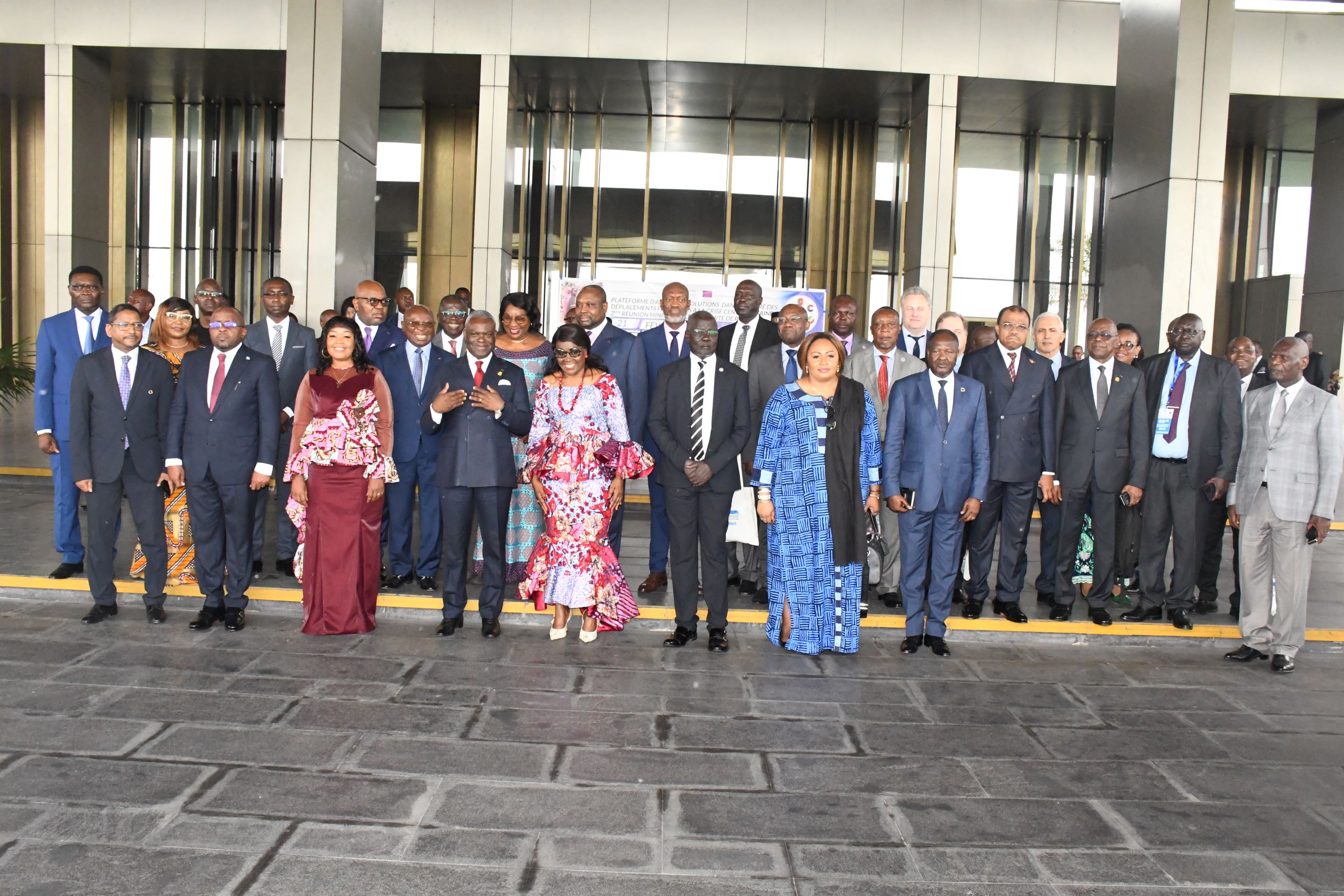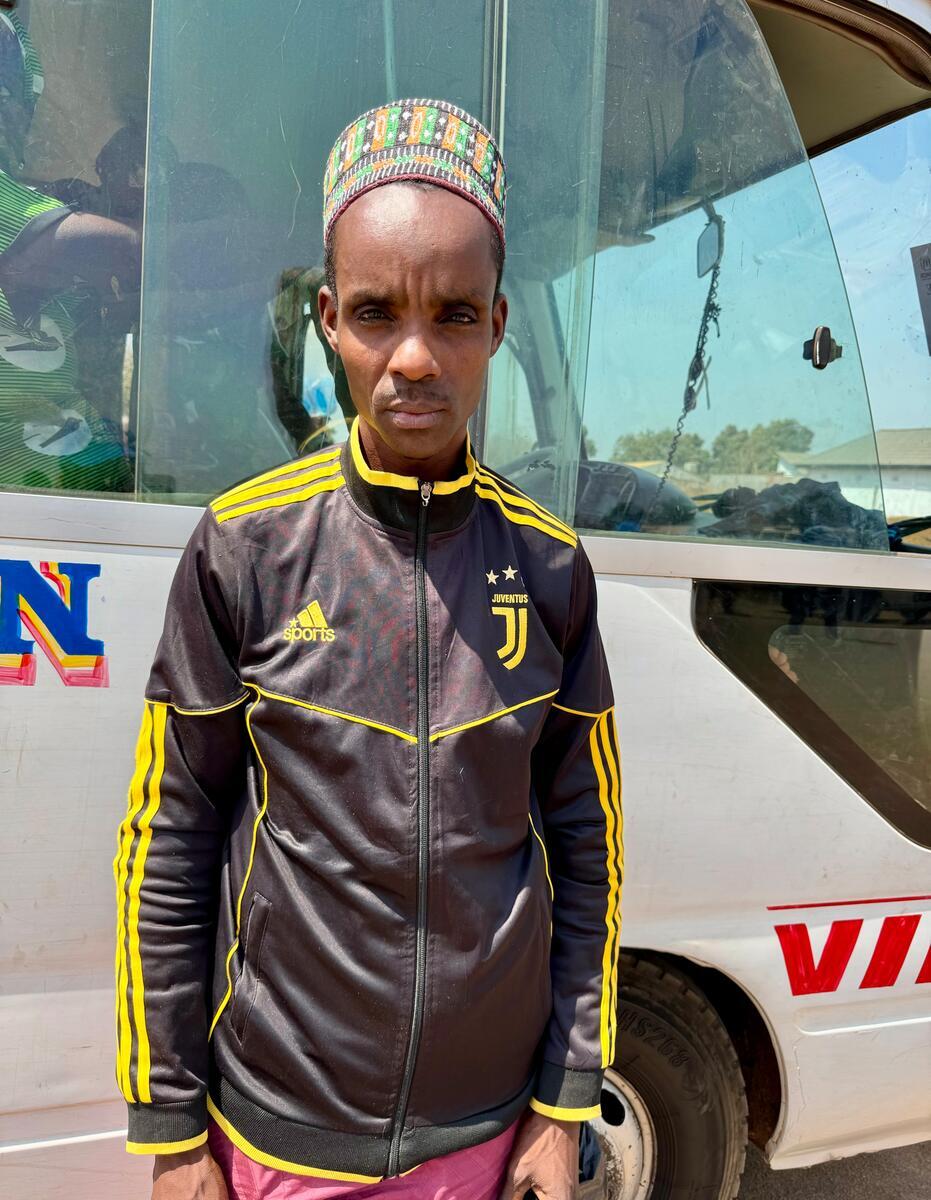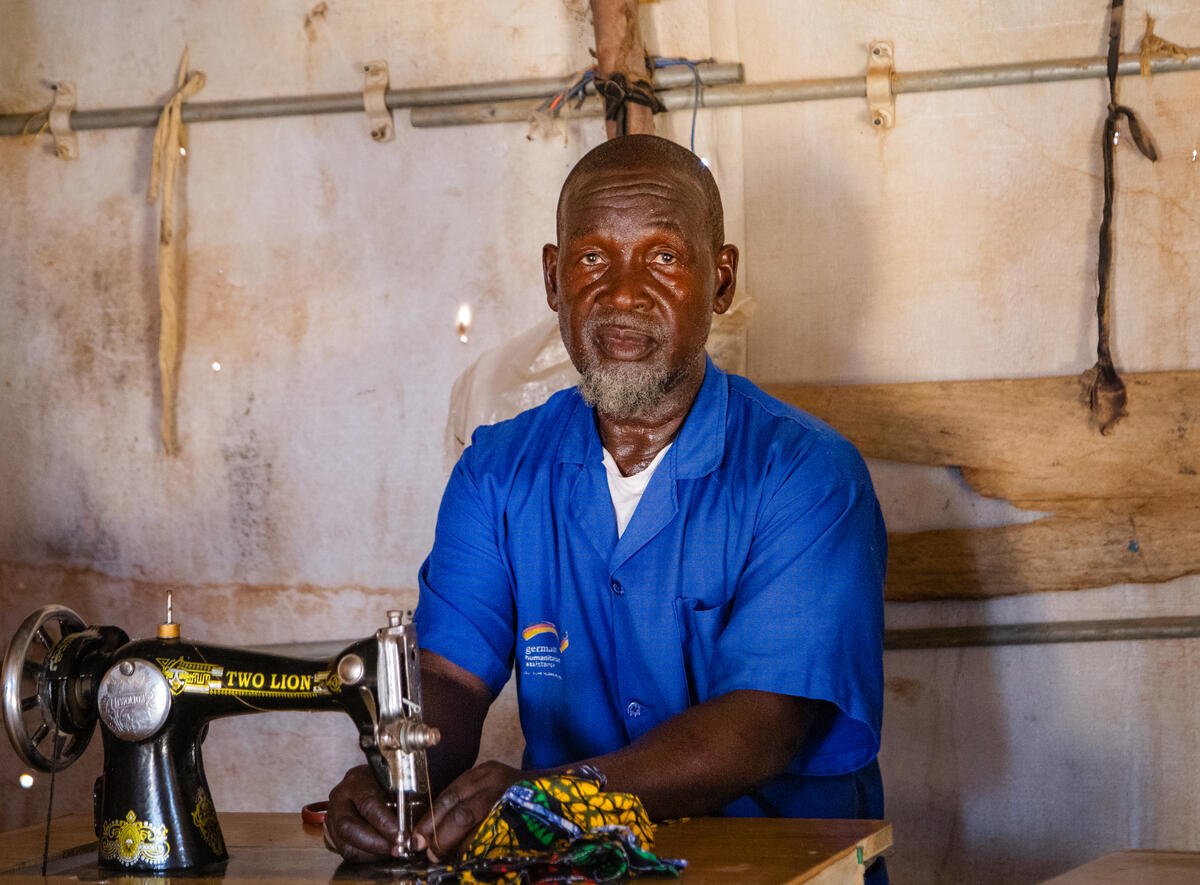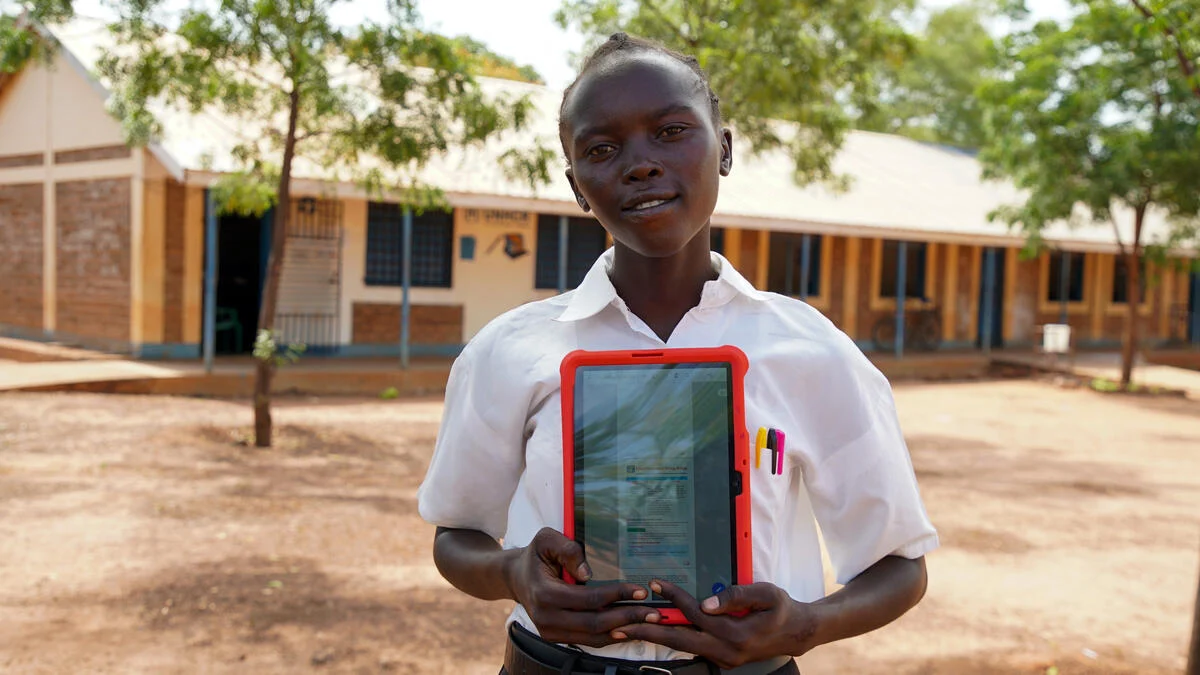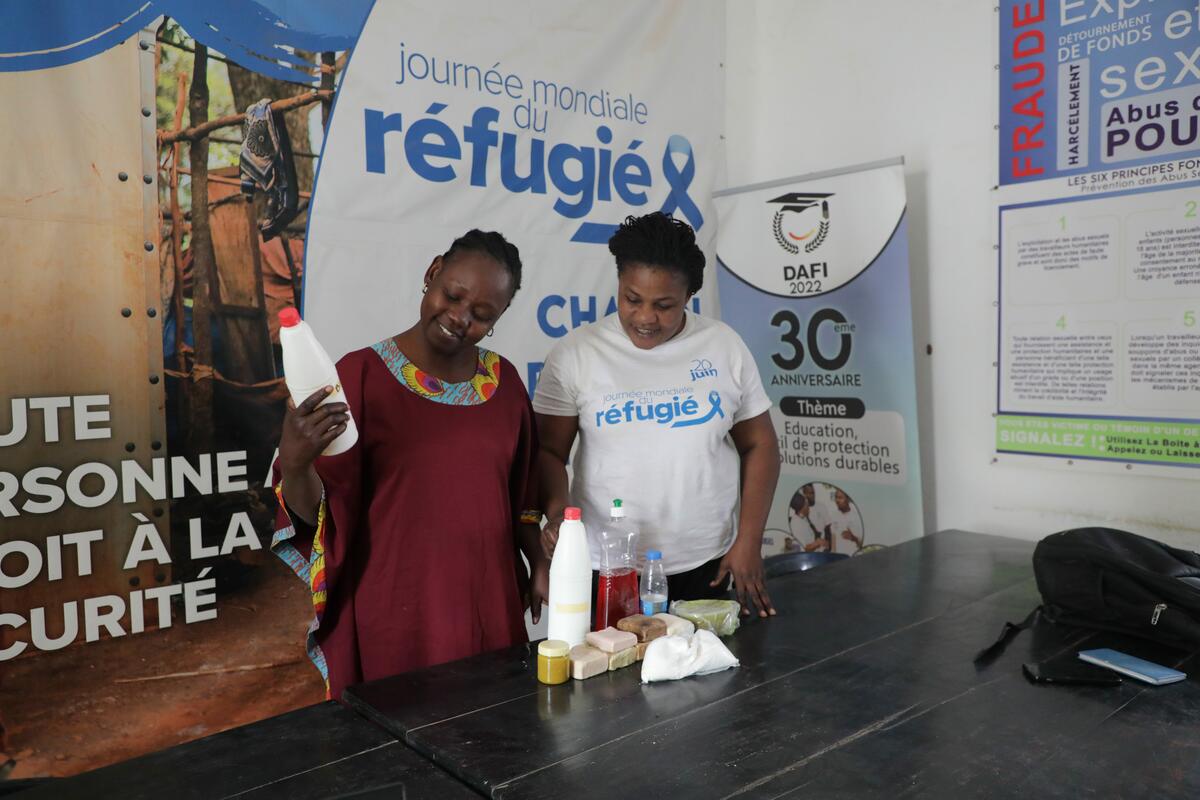UNHCR scales up refugee registration in Sudan with EU support, despite conflict
UNHCR scales up refugee registration in Sudan with EU support, despite conflict
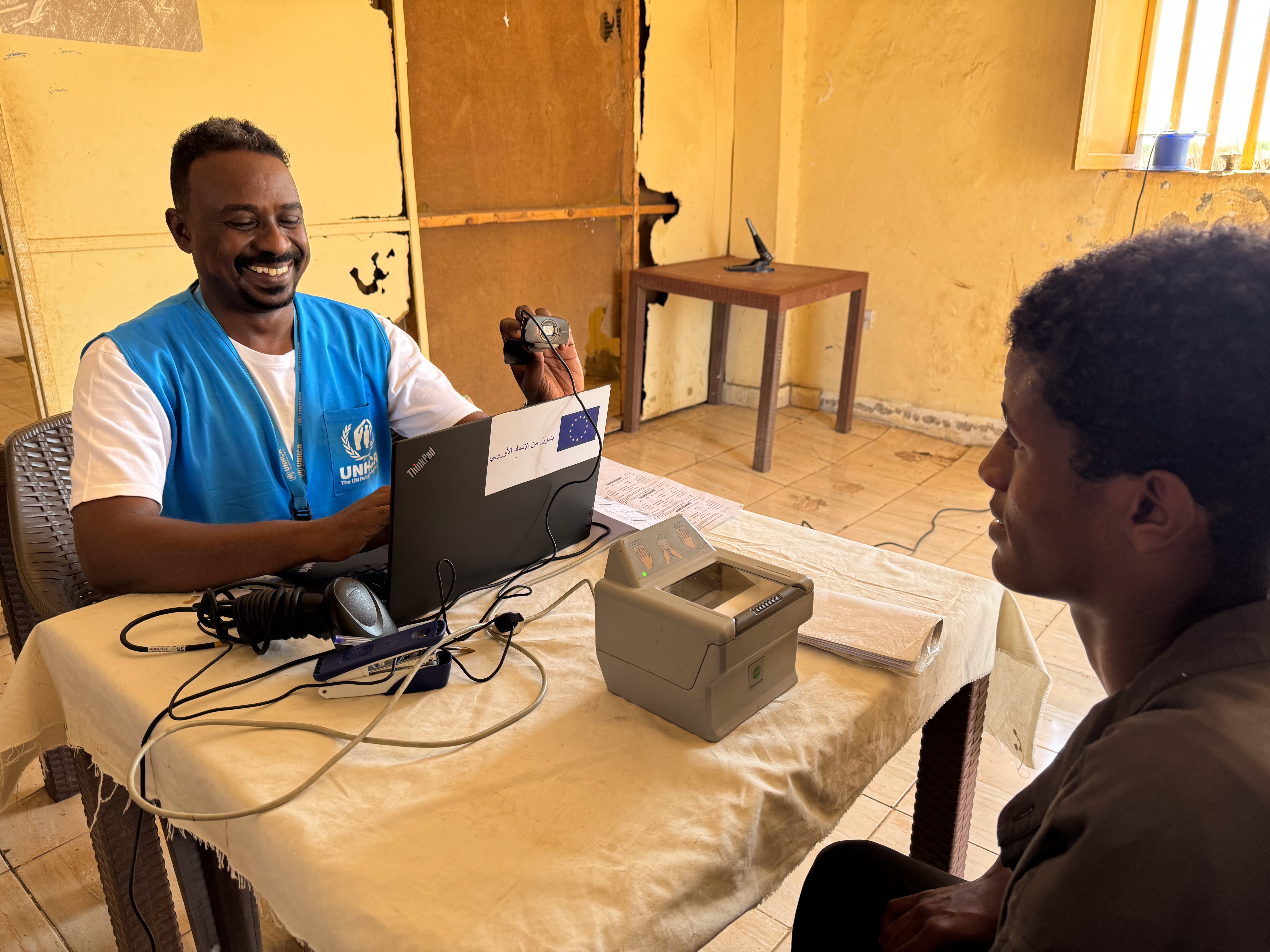
Refugees and asylum-seekers undergo registration at the UNHCR registration desk in Um Gargour camp in Sudan's Gedaref State.
In April 2023, Haile was counting the days until his travel to Egypt. All his paperwork – including a travel document issued by the Government of Sudan – was ready. He was bound for Cairo to receive medical treatment for a heart condition.
Haile, 62, has been a registered refugee in Sudan since 2003 and lived in the capital Khartoum. When conflict broke out in Sudan in April 2023, Haile, who fled Humera in Tigray region of Ethiopia over 20 years ago in search of safety, was once again forced to flee his home.
At first, he was hesitant to leave the capital due to his scheduled travel to Egypt for his medical procedure, “but there was no sign of the violence stopping,” recounted Haile, “so I took the difficult decision to leave Khartoum with my family.”
Instead of traveling overseas, Haile, his wife and their three children found themselves on the move within Sudan. The journey from Khartoum wasn’t easy for Haile, who was harassed by armed men along the way. He sustained an eye injury leaving him visually impaired in one eye.
A few weeks later, the family reached Gedaref State in eastern Sudan and made their way to Tunaydbah, a sprawling camp in Gedaref which already hosts over 20,000 Ethiopian refugees who fled Tigray in the last few years. In July 2023, Haile and his family visited the refugee registration desk in the camp, run by UNHCR, the UN Refugee Agency, and Sudan’s Commission of Refugees (COR), to update his family and his information in proGres, UNHCR’s registration and case management system.
Registration and issuing documentation is a critical activity for people forced to flee, including refugees. It not only confirms the legal identity of refugees and asylum seekers but also their status as people in need of international protection. Most importantly, it enables them to access life-sustaining assistance and services more effectively in their country of asylum.
With the support of the European Union, UNHCR and COR have ensured continuous registration in Sudan, such as in Gedaref despite the ongoing conflict. This guarantees that those who were forced to flee because of the conflict have updated records and can benefit from assistance and services where they have now found safety.
Haile and his family are among some 260,000 refugees and asylum-seekers who fled conflict areas in Sudan since April 2023 to other areas across the country. So far UNHCR and COR have registered and updated information for over 8,700 refugees and asylum-seekers who have found safety in Gedaref. Upon registration, they receive hot meals and core relief items to help them begin settling down in the camp. They also receive shelter and are included in the monthly food rations provided by the World Food Programme.
Just as having updated information in proGres eased Haile’s access to proper and timely health in the camp, keeping up-to-date refugee records helps UNHCR have accurate information about refugees with specific needs who require additional assistance.
In October 2024, when Haile’s refugee ID card expired, he again visited the COR-UNHCR desk to renew his card to continue his treatment.
“The refugee ID for me is a very important document,” explained Haile.
The severity of his condition required Haile’s case to be further referred to a secondary health care facility in Gedaref town, compelling him to travel out of the camp to visit the hospital regularly.
“From the camp to the town, there are many checkpoints along the way. With the refugee ID, I can prove my identity and I have less hassle at these checkpoints.”
Looking to the future, Haile is hopeful that one day he can still undergo the operation for his heart condition. Haile also wishes for an end to the conflict in the country which welcomed him 20 years ago.






